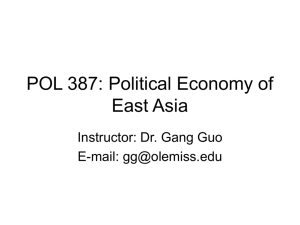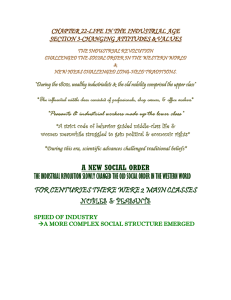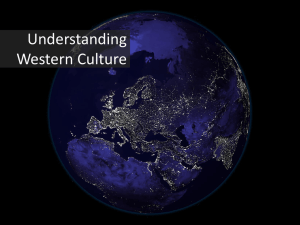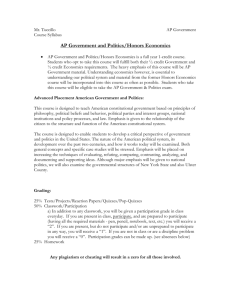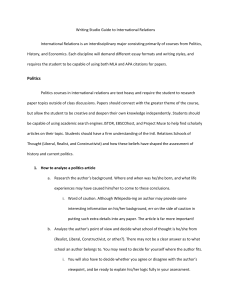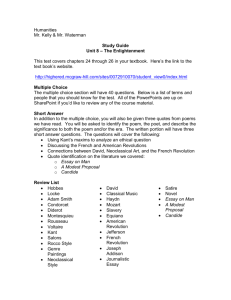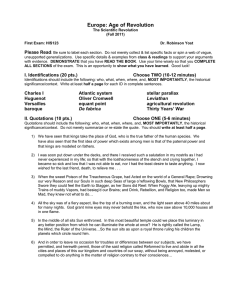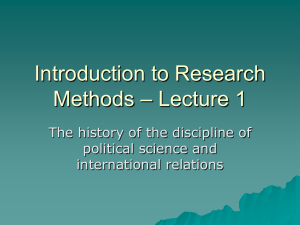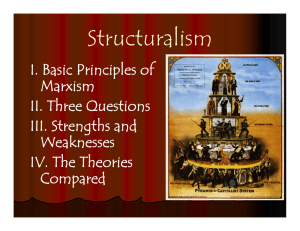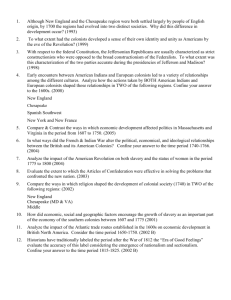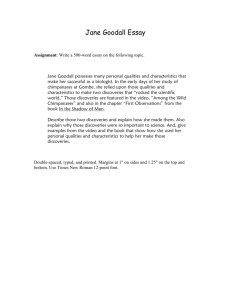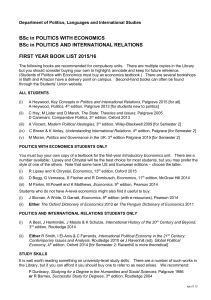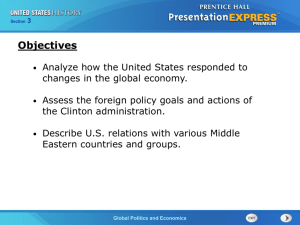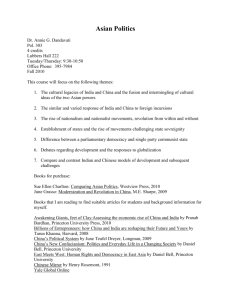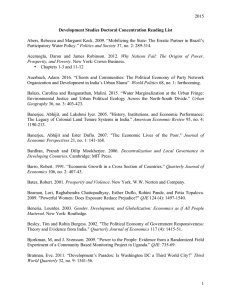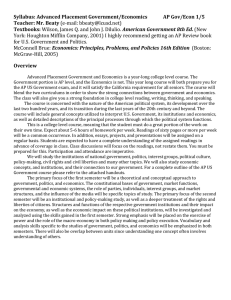Exam Review – NATS 1760 6
advertisement
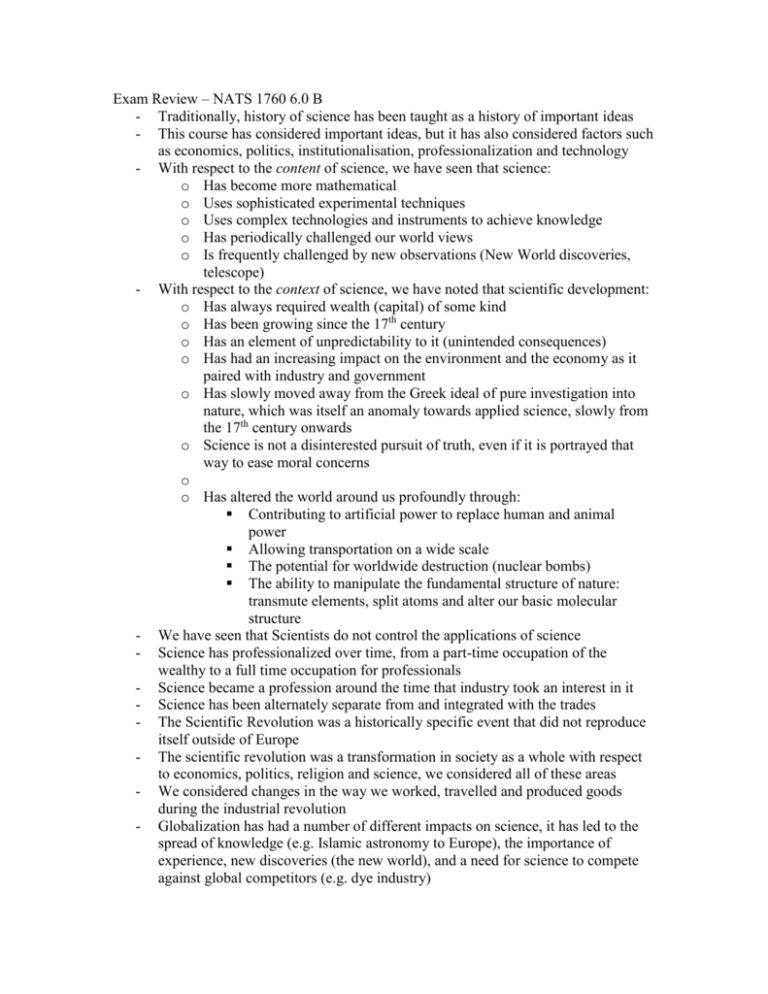
Exam Review – NATS 1760 6.0 B - Traditionally, history of science has been taught as a history of important ideas - This course has considered important ideas, but it has also considered factors such as economics, politics, institutionalisation, professionalization and technology - With respect to the content of science, we have seen that science: o Has become more mathematical o Uses sophisticated experimental techniques o Uses complex technologies and instruments to achieve knowledge o Has periodically challenged our world views o Is frequently challenged by new observations (New World discoveries, telescope) - With respect to the context of science, we have noted that scientific development: o Has always required wealth (capital) of some kind o Has been growing since the 17th century o Has an element of unpredictability to it (unintended consequences) o Has had an increasing impact on the environment and the economy as it paired with industry and government o Has slowly moved away from the Greek ideal of pure investigation into nature, which was itself an anomaly towards applied science, slowly from the 17th century onwards o Science is not a disinterested pursuit of truth, even if it is portrayed that way to ease moral concerns o o Has altered the world around us profoundly through: Contributing to artificial power to replace human and animal power Allowing transportation on a wide scale The potential for worldwide destruction (nuclear bombs) The ability to manipulate the fundamental structure of nature: transmute elements, split atoms and alter our basic molecular structure - We have seen that Scientists do not control the applications of science - Science has professionalized over time, from a part-time occupation of the wealthy to a full time occupation for professionals - Science became a profession around the time that industry took an interest in it - Science has been alternately separate from and integrated with the trades - The Scientific Revolution was a historically specific event that did not reproduce itself outside of Europe - The scientific revolution was a transformation in society as a whole with respect to economics, politics, religion and science, we considered all of these areas - We considered changes in the way we worked, travelled and produced goods during the industrial revolution - Globalization has had a number of different impacts on science, it has led to the spread of knowledge (e.g. Islamic astronomy to Europe), the importance of experience, new discoveries (the new world), and a need for science to compete against global competitors (e.g. dye industry) - The merger of science and industry in the 19th century led to consolidation of influence in a few companies thanks to vertical integration, patent control, etc. The automobile and gasoline were discussed in detail, as they represent a nexus point where technology, politics, economics and science all meet. Keep in mind that we studied industry primarily as industry takes over science in the 19th century, so understanding industrial development before this period helps us to understand how industry transformed science General Study Suggestions Study: - Skim over all notes and text readings at least once, you have a month, give the course a day or two - If you find any one thing too difficult, let it go, you have plenty of choice on the exam Exam: - Leave time to check each question once (5-10 min each) - Complete something on all questions - You should consider writing an essay plan - An essay response must have an argument, not just a list of points - Memorize at least one or two cases of scientific development in order to have examples to use in your broader answers
